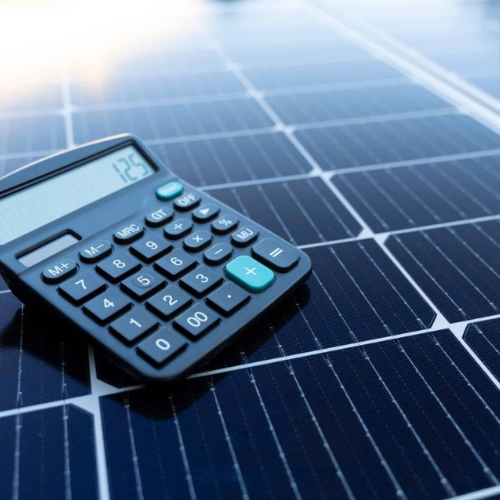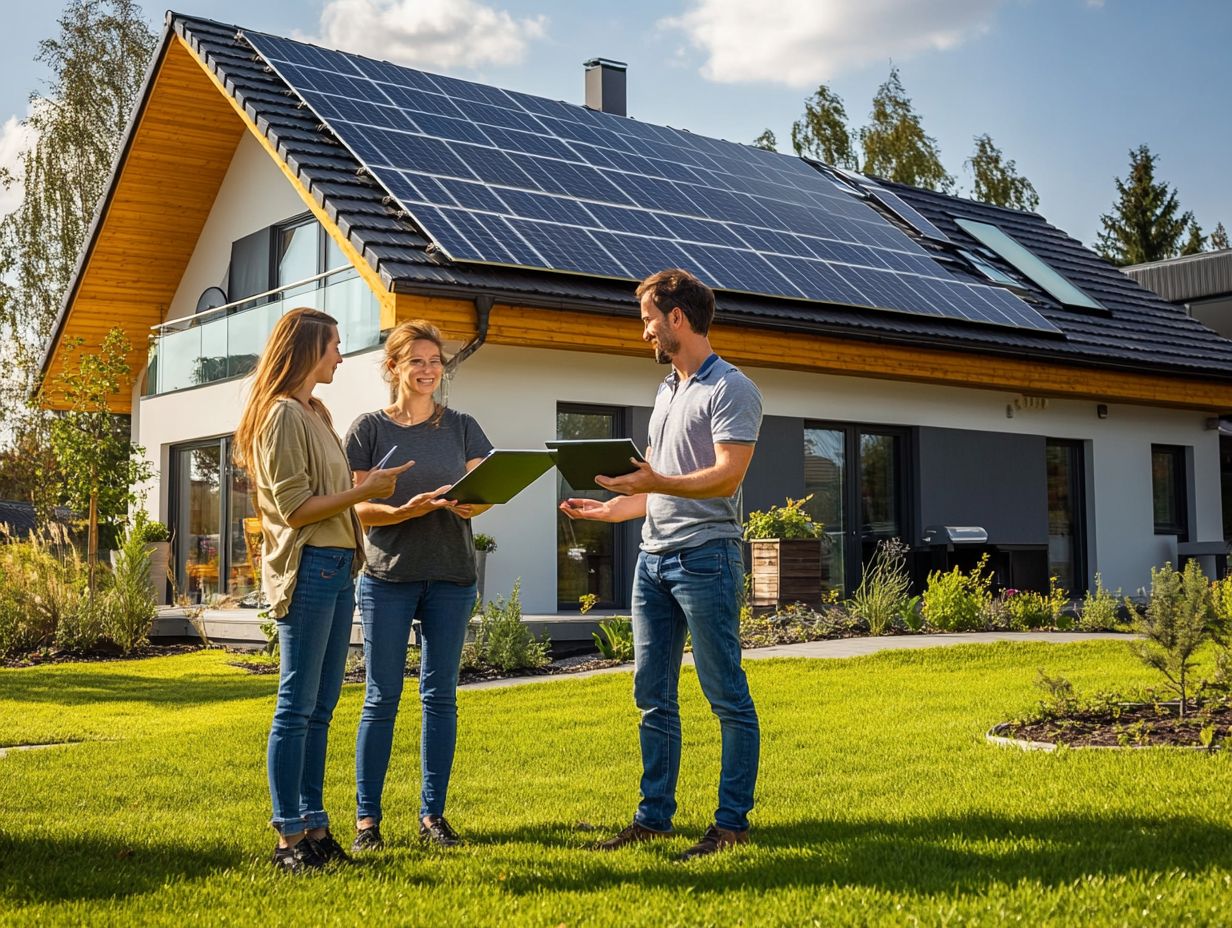Contents
This article aims to clarify common myths about solar panels and shares important facts about solar panels, including their advantages, limitations, and their impact on energy efficiency and environmental impact.
It dives into the financial side of things, helping you figure out your return on investment and navigate the available solar incentives like tax incentives and federal rebates, and gives you tips on choosing the right solar panel system for your needs.
Not only do solar panels generate electricity, but they also help boost energy independence.
What are Solar Panels?
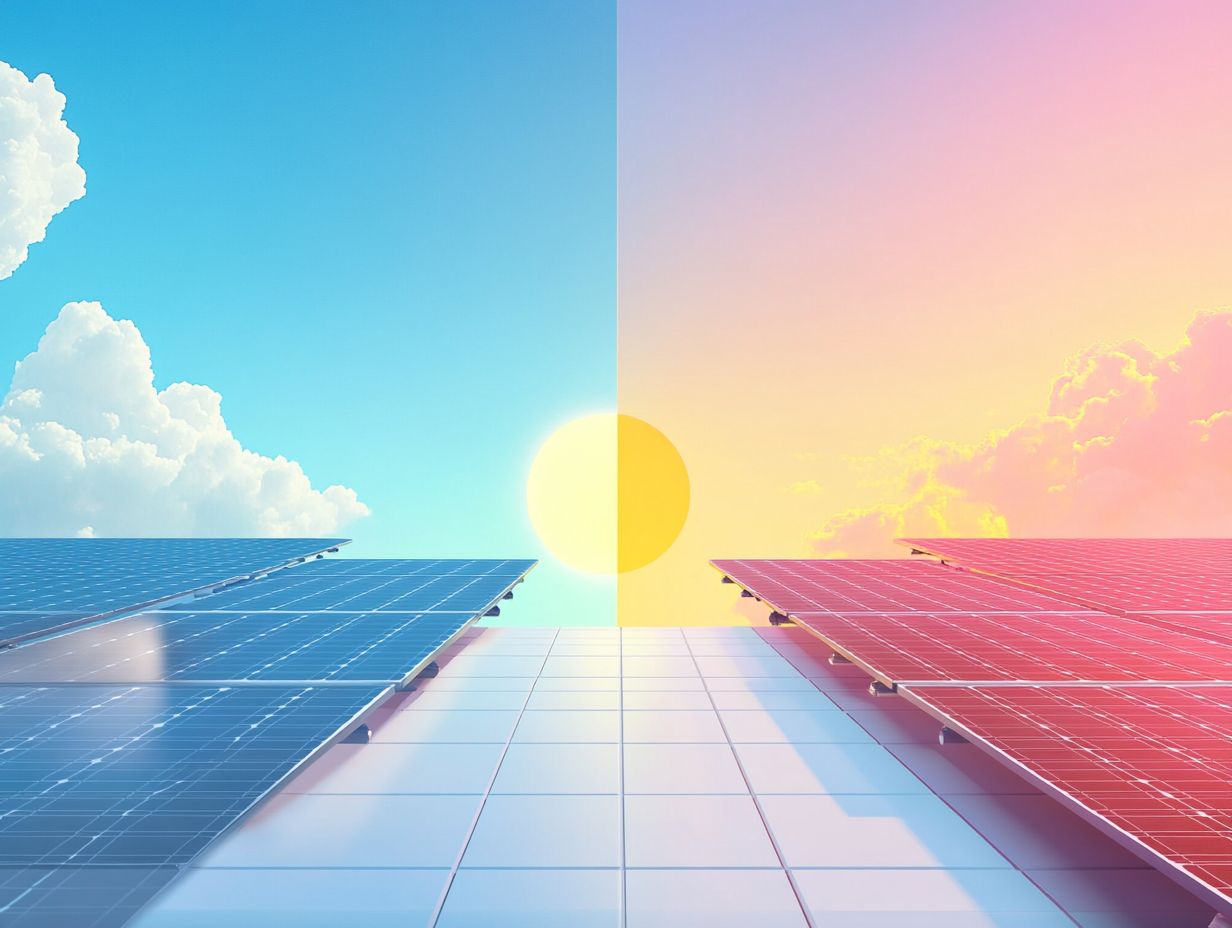
Solar panels are those cool devices that turn sunlight into electricity using photovoltaic cells. They play a crucial role in tapping into renewable energy for your home or business, contributing to energy independence and reducing the ecological footprint.
By using solar technology, you can help boost energy independence and support clean energy initiatives, all while reducing your reliance on fossil fuels, cutting down on your carbon footprint, and contributing to climate change mitigation.
Common Myths about Solar Panels
You might have come across a ton of myths about solar panels that can really cloud your perception, leading to misconceptions about how efficient, cost-effective, and effective they actually are.
It’s super important for you to understand these common myths so you can make informed decisions about solar energy. Many of these beliefs can scare off potential users from enjoying all the great benefits that solar power systems have to offer.
U.S. Department of Energy (DOE). (2022). Solar Energy Technologies Office: FAQs. Link
Dispelling Common Misconceptions
Debunking misconceptions about solar panels can really enable you as a homeowner or business owner to embrace renewable energy solutions without any fear or hesitation.
You might think that solar panels only work well in sunny climates or that they need a ton of maintenance, but the truth is quite the opposite when it comes to their efficiency and lifespan.
In reality, solar panels can generate electricity even on those cloudy or rainy days by capturing diffused sunlight effectively. This means you can benefit from solar energy all year round, no matter where you are.
As for maintenance, it’s often minimal; a simple cleaning once a year and a few periodic inspections are usually enough to keep everything running smoothly.
Thanks to advancements in technology, modern solar panels are more durable than ever, with many models boasting warranties of 25 years or more.
When you take all these factors into account—plus the tax incentives and falling installation costs—the economic benefits of solar energy systems become pretty clear. It’s a smart investment for a sustainable future!
Facts about Solar Panels
In terms of solar panels, it’s crucial for you to understand the facts so you can really appreciate how they contribute to energy production, energy diversification, and the environment.
Knowing these solar energy facts will show you how photovoltaic technology works to convert sunlight into usable electricity, enhancing energy efficiency through solar panel types like monocrystalline, polycrystalline, and thin-film.
Plus, you’ll get a glimpse of the different types of solar panels out there and the unique advantages each one brings in generating clean energy.
Advantages and Disadvantages of Solar Panels
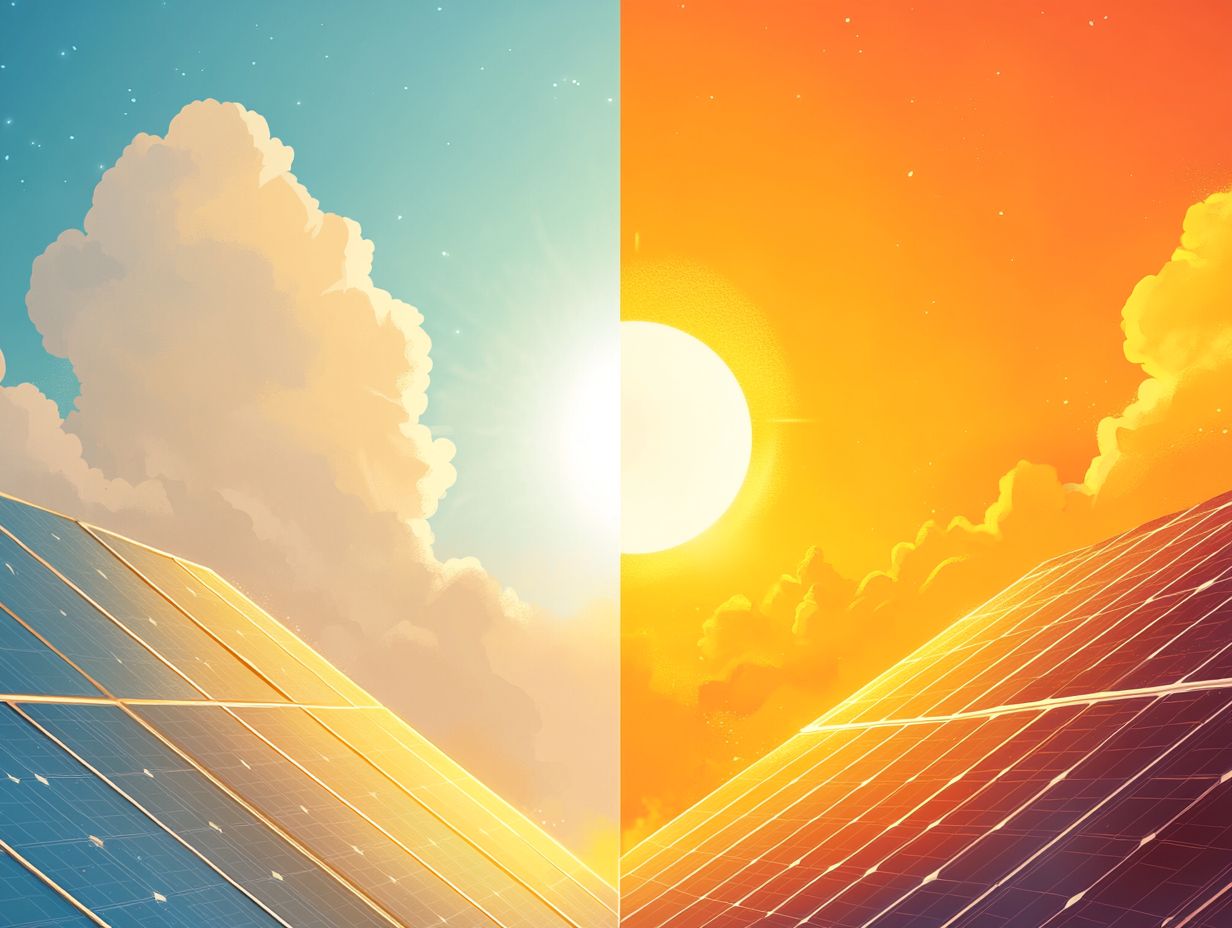
Evaluating the advantages and disadvantages of solar panels can aid you in making an informed investment decision. The perks include significant savings on your electricity bills and a smaller carbon footprint, but don’t forget about the limitations, like those upfront installation costs and specific requirements for connecting to the grid.
Beyond the immediate advantages of harnessing solar power, you’ll likely enjoy long-term savings on your energy bills, which can lead to greater energy independence and potentially increase your home value.
Plus, incentives like tax credits and rebates make the financial side of switching to solar even more attractive.
Just keep in mind that some areas have specific site requirements that can affect where you place the panels and how well they perform.
In terms of choosing the right type of solar panel, you might find yourself worrying about efficiency and durability. That’s why it’s so important to do your homework and research thoroughly to ensure you’re making the best investment possible.
Cost and Savings of Solar Panels
Understanding the costs and savings tied to solar panels is crucial if you’re a homeowner or a business thinking about jumping into the renewable energy game.
The installation costs can vary quite a bit depending on things like the size of the system, whether it’s a residential solar or commercial solar project, and where you’re located.
However, many people discover that going solar brings substantial electricity savings over time, making it a pretty smart investment in the long run.
Calculating Return on Investment
Calculating the return on investment (ROI) for solar panels means looking at the initial costs versus the long-term energy savings they bring.
By checking out factors like installation costs, solar panel performance, and any potential government rebates, you can figure out how quickly you might recoup your investment.
It’s important to think about the energy conservation benefits too. These systems not only help you save on electricity bills but also contribute to a more sustainable future.
Keeping an eye on solar energy costs throughout the system’s lifecycle can give you insights into fluctuations due to market trends and tech advancements. Plus, regular maintenance is a big deal—it can really impact your overall financial performance by ensuring everything runs smoothly and extending the lifespan of your panels.
By considering all these different metrics and factors, such as energy consumption and renewable portfolio standards, you can gain a comprehensive understanding of the financial benefits that solar energy systems can offer you.
Choosing the Right Solar Panel System
Choosing the right solar panel system, including options like grid-tied systems and off-grid systems, is crucial for maximizing your investment and making sure you get efficient solar power generation.
You’ll want to think about the different types of solar panels out there, what your specific energy needs are, and how they will connect to the grid.
These factors can really make a difference in your overall performance and savings.
Factors to Consider
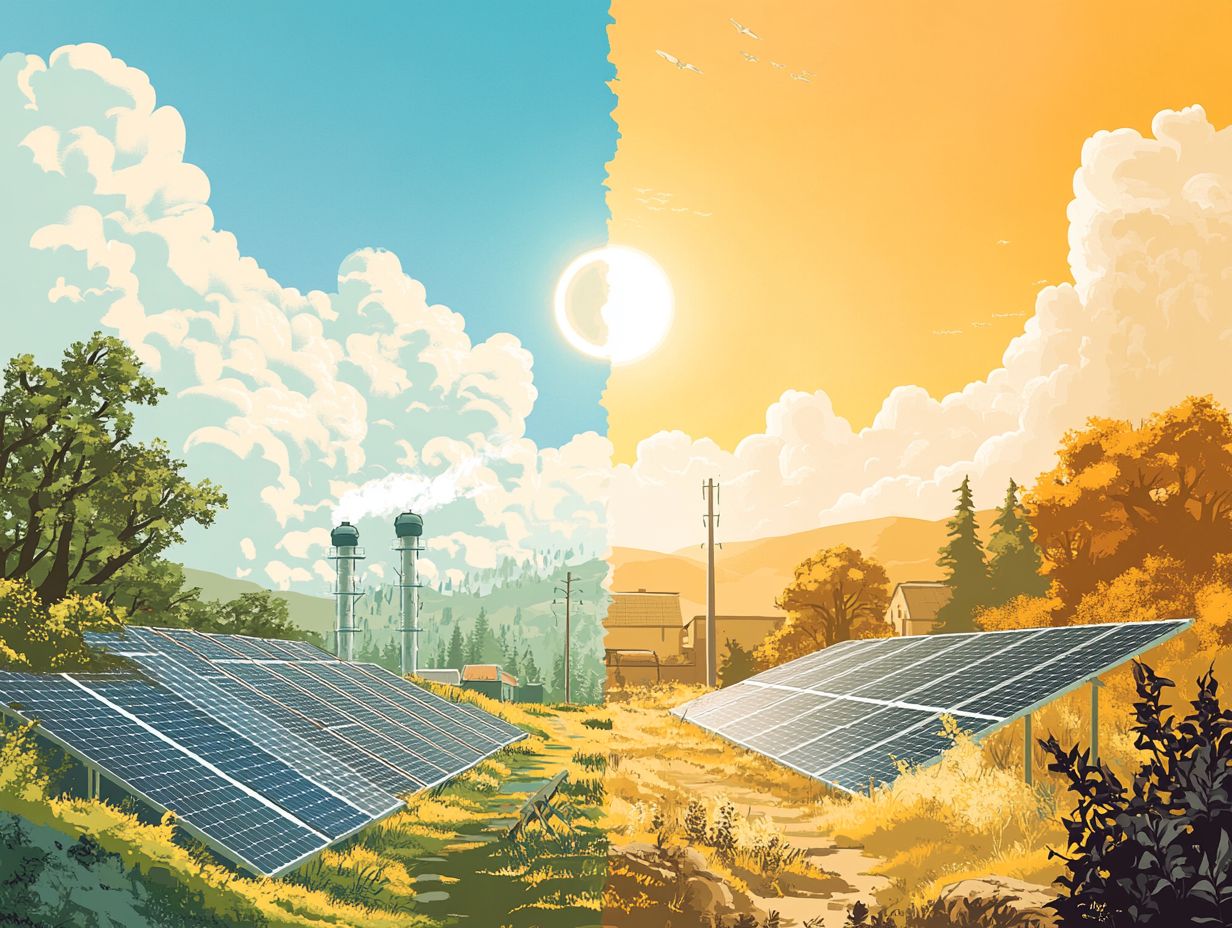
When you’re picking out a solar panel system, there are some key factors you need to think about that can really affect how well your solar energy setup works and what kind of return on investment you can expect.
You’ll want to consider things like solar panel efficiency, maintenance requirements, battery storage options, energy storage systems, and any available solar incentives that could help offset those installation costs.
Understanding how these elements work together not only helps you choose the right system but also boosts the financial viability of community solar projects and utility-scale solar initiatives.
For example, solar panel efficiency plays a huge role in energy output, which directly impacts your performance and long-term savings.
Taking a close look at maintenance needs will ensure that your system keeps running smoothly with minimal fuss, ultimately saving you from unexpected costs.
Don’t forget about battery storage—it’s a game-changer for energy independence and can help you maximize savings by storing up excess energy for when you need it later, especially in off-grid systems and during grid integration.
And remember, taking advantage of solar financing options, subsidies, and local incentives can make that initial investment a lot easier to handle, leading to some serious savings down the road.
U.S. Department of Energy (DOE). (2020). A Guide to Community Solar: Utility, Private, and Non-profit Project Development. Link
Frequently Asked Questions
Are solar panels expensive?
Myth: Many people believe that solar panels are too expensive to afford.
Fact: While solar panels can be a significant investment, they can also save you money in the long run through reduced energy bills and potential tax credits or incentives.
Do solar panels only work in hot, sunny climates?
Myth: It is a common misconception that solar panels only work in hot and sunny areas, ignoring their performance and efficiency ratings in various climates.
Fact: Solar panels can generate electricity even on cloudy or overcast days, leveraging solar tracking and microinverters, and they can still be effective in cooler climates.
Do solar panels require a lot of maintenance?
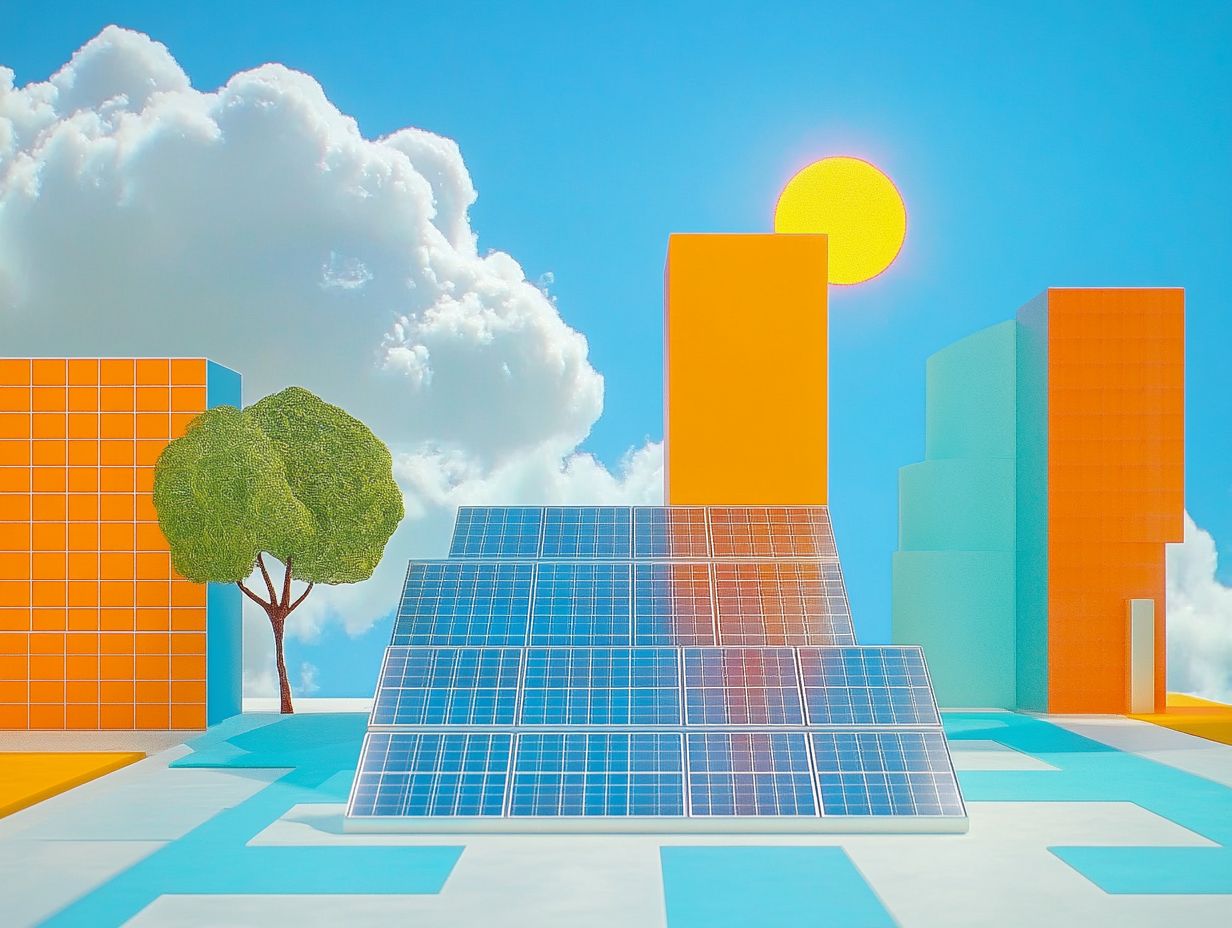
Myth: Some people believe that solar panels are high maintenance and require frequent cleaning and repairs.
Fact: Solar panels typically have no moving parts and require very little maintenance. They can last for decades with minimal upkeep.
For example, a study shows that 95% of solar panel owners report minimal maintenance issues over a period of 20 years.
Do Solar Panels Only Generate Electricity During the Day?
Myth: A common myth is that solar panels only generate electricity during daylight hours.
Fact: While solar panels do produce the most energy during the day, they can also store excess energy in batteries to be used at night or during cloudy weather.
Common battery types include lithium-ion and lead-acid batteries, which are widely used in solar energy systems.
Can Solar Panels Be Installed Only on Roofs?
Myth: Many people believe that solar panels can only be installed on rooftops.
Fact: Solar panels can be installed on various surfaces such as the ground, walls, and even on poles, making them a versatile option for many homes and businesses.
Successful installations have been reported in various locations, including residential ground mounts in suburban areas and wall-mounted systems on commercial buildings.
Do Solar Panels Only Provide Environmental Benefits?
Myth: Some may think that the only benefit of solar panels is reducing carbon emissions and helping the environment.
Fact: While solar panels do have a positive impact on the environment, they can also provide financial benefits for homeowners and businesses through energy savings and potential tax incentives, such as the Investment Tax Credit (ITC), which can return 26% of installation costs, contributing to energy resilience and security.


